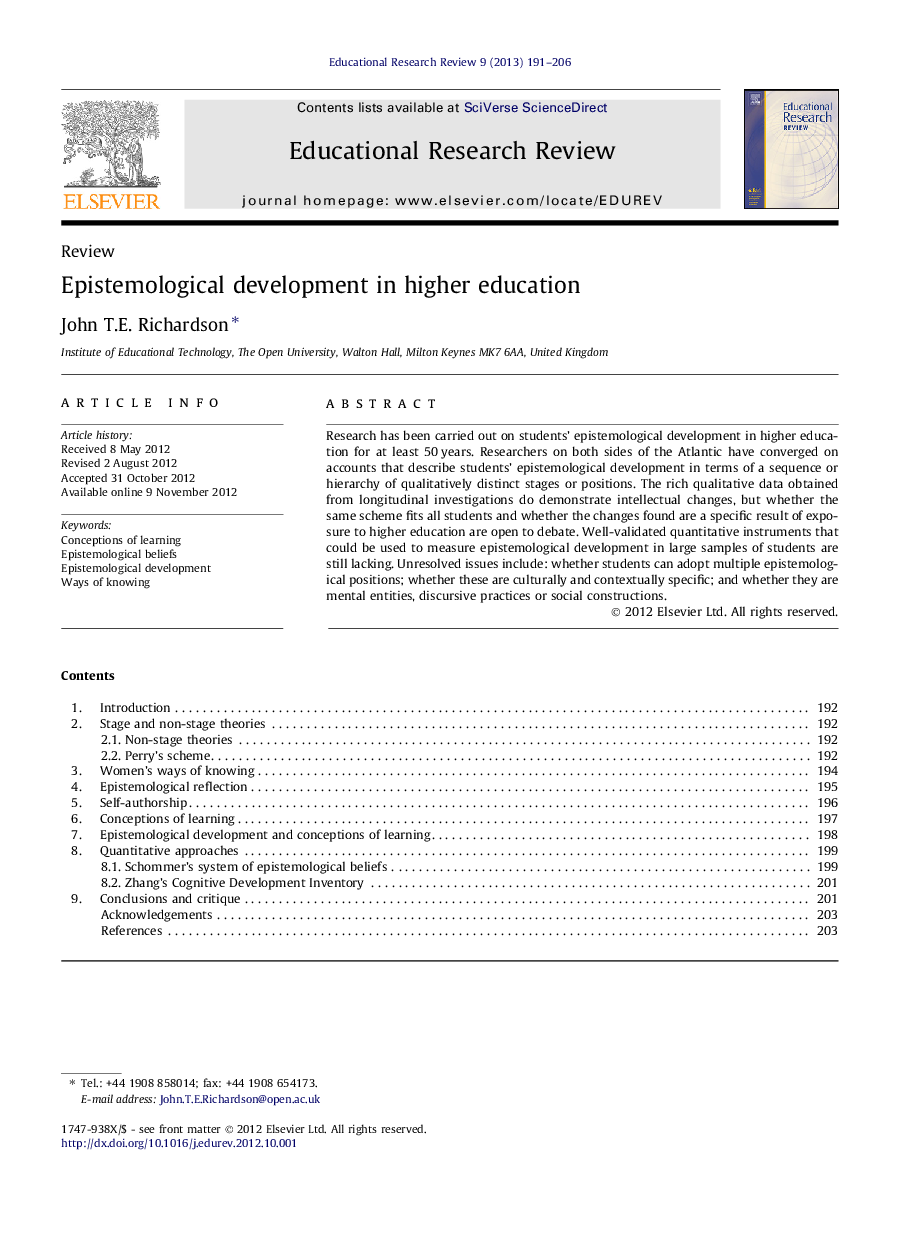| Article ID | Journal | Published Year | Pages | File Type |
|---|---|---|---|---|
| 355151 | Educational Research Review | 2013 | 16 Pages |
Research has been carried out on students’ epistemological development in higher education for at least 50 years. Researchers on both sides of the Atlantic have converged on accounts that describe students’ epistemological development in terms of a sequence or hierarchy of qualitatively distinct stages or positions. The rich qualitative data obtained from longitudinal investigations do demonstrate intellectual changes, but whether the same scheme fits all students and whether the changes found are a specific result of exposure to higher education are open to debate. Well-validated quantitative instruments that could be used to measure epistemological development in large samples of students are still lacking. Unresolved issues include: whether students can adopt multiple epistemological positions; whether these are culturally and contextually specific; and whether they are mental entities, discursive practices or social constructions.
• Students’ epistemological development has been studied for 50 years. • Qualitative longitudinal research demonstrates genuine development. • Most accounts assume that students adopt discrete stages in a hierarchy. • Whether these are culturally and contextually specific is a matter of debate. • They can be seen as mental entities, discursive practices or social constructions.
